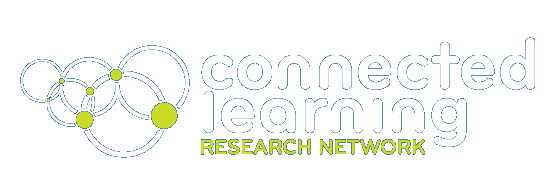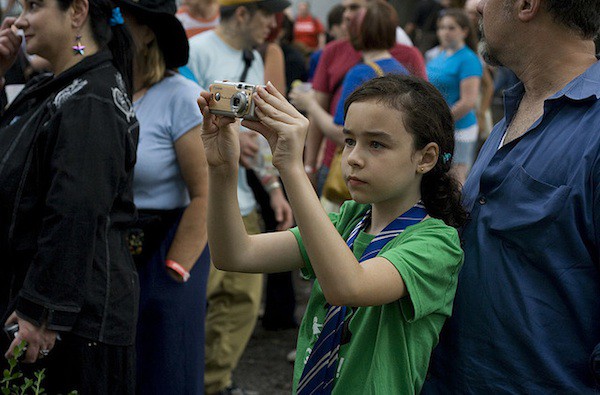What Counts As Learning?
November 11, 2013
PROJECTS: The Class
TAGS: Connected Learning
I have recently contributed to a new issue of the Bank Street occasional papers. The issue is called “The Other 17 Hours: Valuing Out of School Time” and explores recent attention to the meaning and nature of learning during the time not spent at school. My essay describes some of the research I am involved with as part of the Connected Learning Research Network and examines how learning is constructed and enacted in six different kinds of families in London. By showing that who defines learning in domestic contexts and on what basis, I argue that class-based, inherited, and aspirational discourses and social imaginaries frame how we talk about learning in the home. I am trying to chip away at the larger problem of how we talk about learning when it isn’t easily recognisable as such and fits into our preconceptions and assumptions of the kind of learning we experience at school. The entire issue is equally puzzled by this challenge and brings together an interesting set of essays looking at learning in the home, in after-school and community-based learning environments, and indeed even more informally on the street or in everyday culture.
In this post I want to reflect more widely on some of the difficulties of talking about out of school learning and also to question some of our motives for being interested in these spheres of activities – a line of inquiry which I know also makes me think about my own interest in this area.
The title of the Bank Street issue, “The Other 17 Hours: Valuing Out of School Time,” shows us how much we approach the problem of identifying and talking about learning through a particular lens. The emphasis on time – the 17 hours – is a good place to start. There clearly is a relationship between the time we spend on things and learning although it is equally puzzling to work out what that relationship might be. Recently, Malcolm Gladwell has popularised the idea of needing to practice for 10,000 hours to become expert in a domain. In some ways this idea of discipline and practice is a deliberate attempt to counter older paradigms that emphasize intuition and epiphany, such as Archimedes’ ‘Eureka’ moment. But then again, practicing and discipline isn’t exactly the same thing as learning even if they are intimately and intricately related. Additionally, repetition – clearly absolutely necessary in many forms of embodied practice – isn’t always a form of learning even if it has a necessary role to play within it.
In other words, spending an amount of time on doing something is no guarantee of learning and in a way reinforces behaviourist notions that rehearsing external patterns of activity have an effect inside a person. However, one of the benefits of having a time based approach to quantifying learning is exactly that. You can count and measure it. We live in a time where being able to measure something is a necessary guarantor of value. This kind of approach underpins social attitudes towards children and young people. We want to know where they are and what they are doing with their time. Older Protestant ideas about wasting time and maximising its utility inflect the way that we organise, control and supervise the lives of our young. Historians of education tell us that one strand of the argument to develop mass education systems was the need to provide childcare so that the labour force can be ‘free’ to work. Again, readers will have perfectly good arguments both for and against these points of view. The question really to ask here is how the attention to learning fits in to this very complicated and multifaceted set of arguments and whether we tend to overplay the learning argument as a way of rationalising all the other forces at work in the provision of school and out-of-school activities.
In an elegant phrase, Judith Green and Allan Luke introduced the idea of ‘what counts as learning and what learning counts‘. This captures both the idea of externally imposed metrics defining learning in an era of increased anxiety about maximising diminishing resources – how we tend to think of the time of childhood – and additionally that learning as an abstract idea has to have an object or a goal for us to be able to ‘count’ it as learning. Whilst we tend, rather uncritically and in a rather lazy manner to think of learning as a good thing in itself, the problem remains: learning what? It is actually impossible to imagine a state of ‘not learning’. There is probably something essential about being a human being that means you are always learning. However this opens the door to the idea that learning is in a way promiscuous or amoral. That it isn’t necessarily always going to lead to better things or improve you. And from this point of view all sorts of terrible social situations are of course equally good contexts for learning as exemplified in ethnographic studies of growing up in tough environments, or on the streets, or in prison, show. Does this count as learning?
A key ambition for the digital media and learning field has been to take forms of learning that aren’t counted as such, that may appear just to be play or youth led activities and to show that the activity itself is structured and organised to enable learning progressions. Overall this website contains accounts of learning in informal spaces, by accident, by chance, in the face of adversity and additionally in in- and non-formal spaces where perhaps the learning is not the primary aim of the activity but clearly underpins it in important ways. Furthermore, the idea of connected learning (or perhaps that should really be connecting learning) has explored the need and the processes to support learning across domains, and across different social contexts in order to help validate and give value to learning that goes on beneath the surface that does not traditionally count as learning; as well as showing how learning going on beneath the surface in one place can reveal itself in others. In some ways, these aims can never be realised because as soon as we validate new domains for learning, others will be closed down and proscribed. In flippant moments I imagine the field of connected learning as a vast ‘whack a’mole’ game in a fairground with different experiences and domains popping up for us to capture and then just as we get it, another one rears its head. We can never control what counts as learning because the issue here is who is doing the counting, who controls what counts.
What we can do is raise the bar so that people’s traditional and conventional view of what does count as learning is not taken at face value and is not turned into the kinds of metrics that can become constricting and inhibiting. We have to learn how to be continuously sensitive to finding learning in all sorts of places, to never accept what counts as learning as being the end all and be all of what it means to work as an educator.



